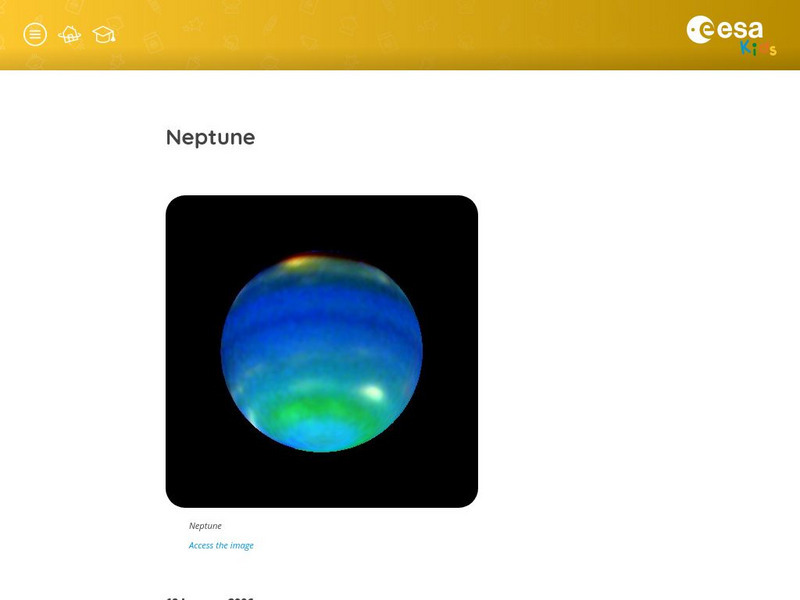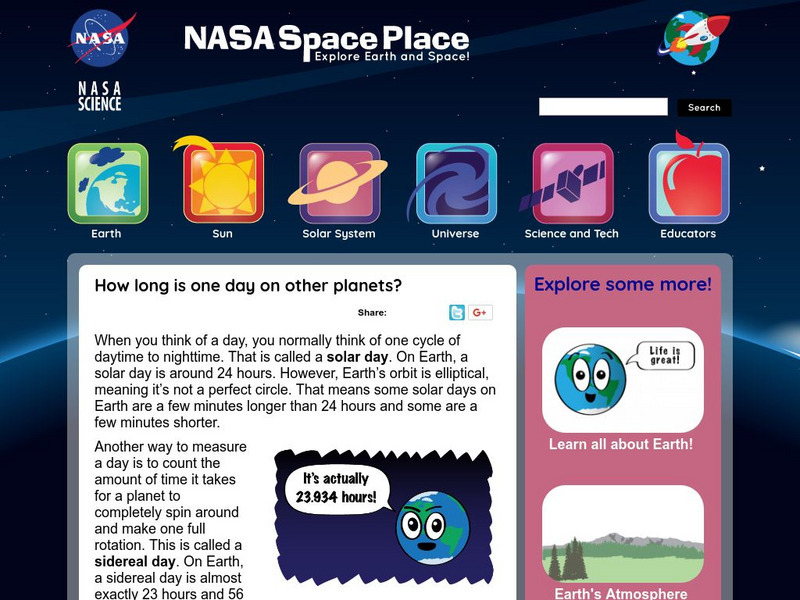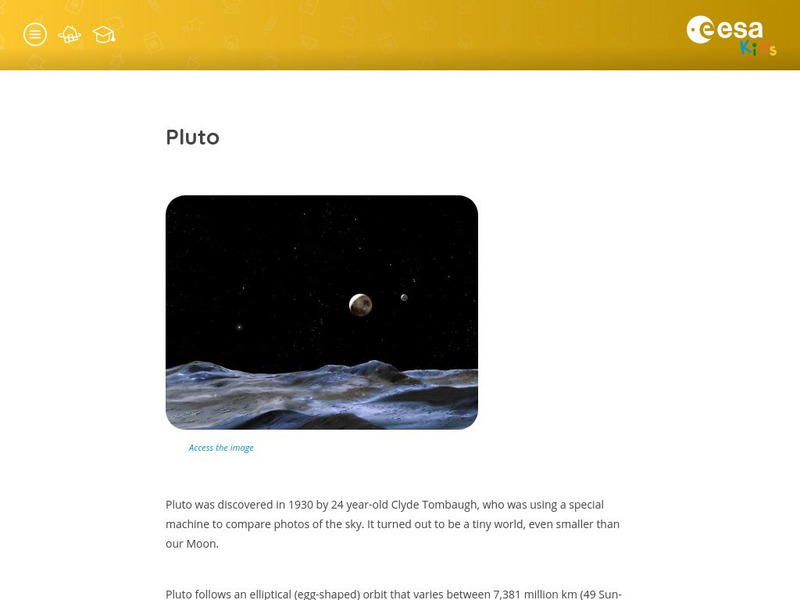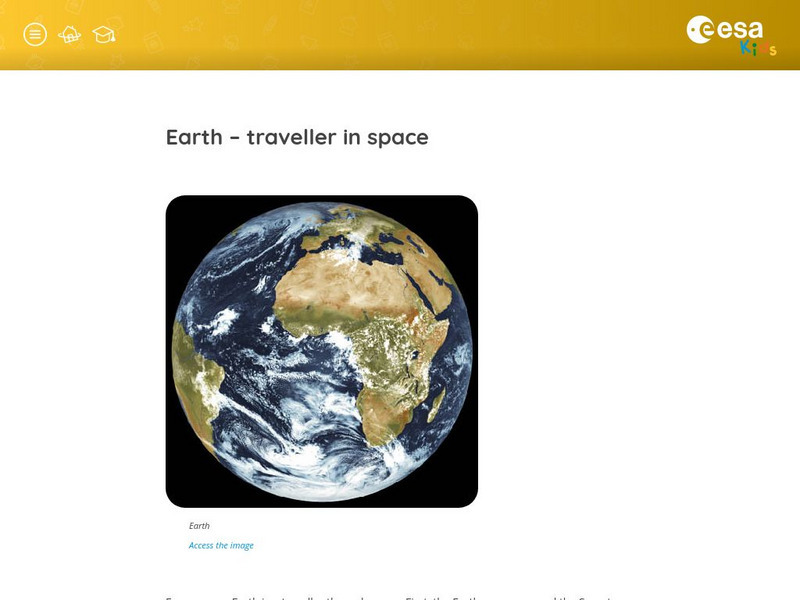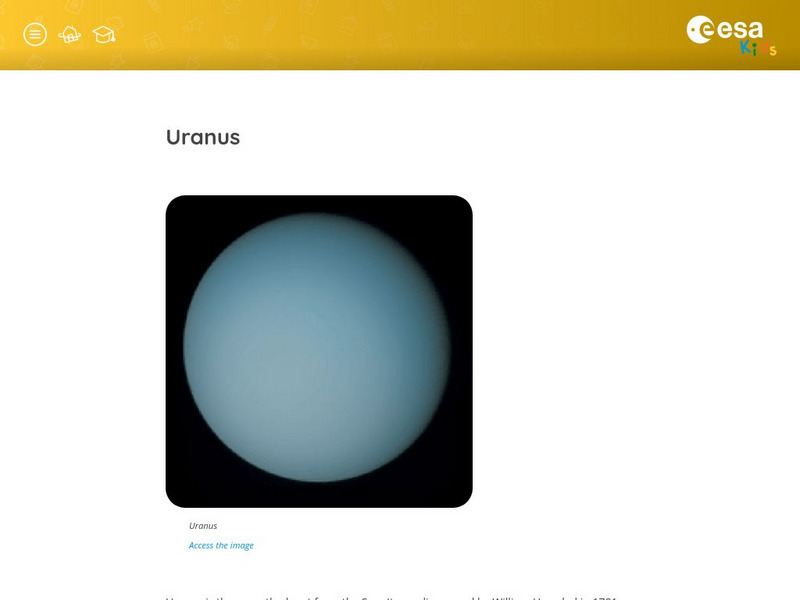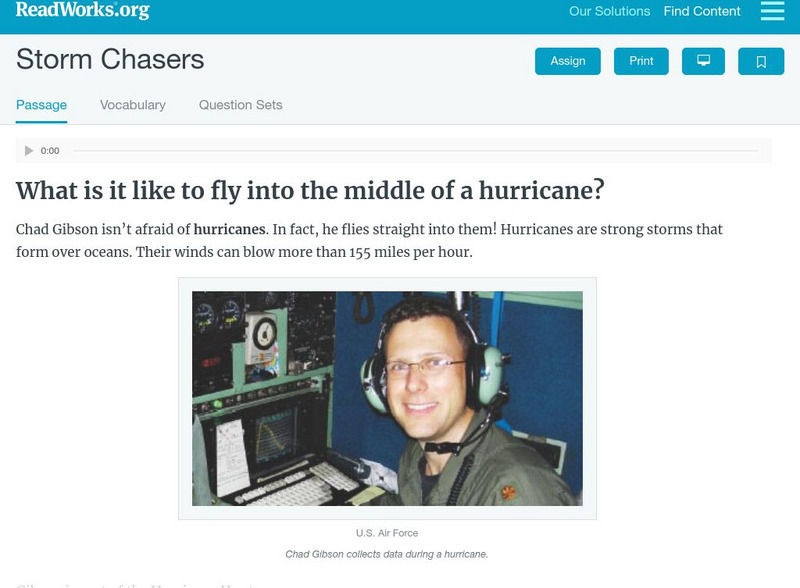Hi, what do you want to do?
Curated OER
Oceans
First graders recognize that nearly three quarters of the Earth is covered by ocean. They locate the Pacific, Atlantic, Indian, Arctic and Antarctic oceans on a map. They describe the difference between ocean water and fresh water.
Curated OER
Meet You at the Midden: Map Game
Pupils examine sketch map of Burrets' Trail at the Nightengale Archaeological Center, interpret map symbols to play game, and identify reasons people modify environment to meet their basic needs.
Curated OER
WHAT HOLDS US TO EARTH?
Middle schoolers they imagine they are Galileo and try to duplicate Galileo's experiments and results.
Australian Broadcasting Corporation
Australian Broadcasting Corporation: News in Science: Galaxy Spinning the Wrong Way
From ABC News in Science, this February 2002 article revolves around findings posted by images from the Hubble Space Telescope which suggest a spiral galaxy spinning in an opposite direction than expected.
NASA
Nasa: Launch a Rocket From a Spinning Planet
This site from the National Aeronautics and Space Administration provides a fun project on rockets. "Nothing in space stands still. Everything either orbits around something else, or moves toward or away from something else. So how do...
Physics Aviary
Physics Aviary: Force Normal on Spinning Space Station Lab
In this lab students are going to be investigating how the parameters of a a spinning space station determine the apparent gravitational field for the people in the station. Students can change the mass of the person, the speed of the...
European Space Agency
European Space Agency: Esa Kids: Our Universe: Neptune
A basic overview of the planet Neptune. Links to information about the other planets and objects in our solar system are included.
NASA
Nasa: Space Place: How Long Is One Day on Other Planets?
Here on Earth a day takes 24 hours. How long are days on other planets in our solar system? Find out here in three different ways, whichever meets your learning style the best.
European Space Agency
European Space Agency: Esa Kids: Our Universe: Pluto
A basic overview of the dwarf planet Pluto. Links to information about the other planets and objects in our solar system are included.
European Space Agency
European Space Agency: Esa Kids: Our Universe: Earth
A basic overview of the planet Earth. Links to information about the other planets and objects in our solar system are included.
European Space Agency
European Space Agency: Esa Kids: Our Universe: Saturn
A basic overview of the planet Saturn. Links to information about the other planets and objects in our solar system are included.
European Space Agency
European Space Agency: Esa Kids: Our Universe: Uranus
A basic overview of the planet Uranus. Links to information about the other planets and objects in our solar system are included.
NASA
Nasa: The Space Place: What's a Barycenter?
This site from NASA helps in explaining a barycenter. "In the case of the Earth and the Sun, both bodies actually revolve, or spin, around the center of the mass between them. This point is called the barycenter."
Read Works
Read Works: Storm Chasers
[Free Registration/Login Required] An informational text about a scientist who chases storms to study them. A question sheet is available to help students build skills in reading comprehension.
Read Works
Read Works: Tornado Scientists
[Free Registration/Login Required] An informational text about tornadoes and the scientists who study them. A question sheet is available to help students build skills in reading comprehension.











